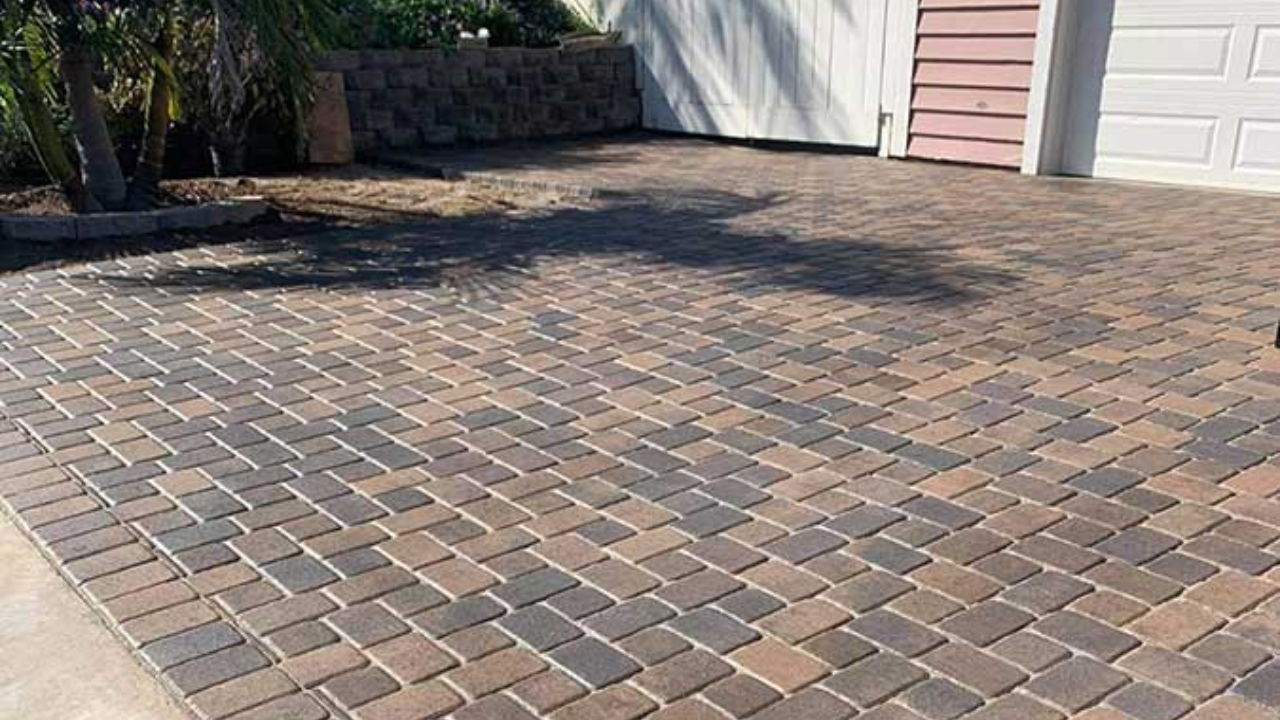Key Takeaways:
- Concrete driveways offer durability, low maintenance, and a variety of design options but are more expensive and prone to cracking.
- Asphalt driveways are cost-effective, flexible, and easy to repair but require regular maintenance and have a shorter lifespan.
- San Diego's mild climate makes both concrete and asphalt viable options, with each material's benefits suiting different homeowner needs.
- Proper installation by a reputable San Diego general contractor or San Diego hardscaping contractor is crucial for the longevity of your driveway.
- The choice between concrete and asphalt depends on your budget, aesthetic preferences, and maintenance willingness.
When it comes to selecting the right material for your driveway, two of the most popular options are concrete and asphalt. Both materials have their unique advantages and drawbacks, making the decision between a concrete vs. asphalt driveway a significant one for homeowners. The choice you make can affect not only the aesthetics of your home but also its value, durability, and maintenance needs.
In this article, we’ll explore the key differences between concrete and asphalt driveways, helping you decide which option best suits your needs, especially if you're considering a project in the San Diego area.
Introduction to Driveway Materials
Driveways are more than just functional spaces for parking vehicles; they also contribute to the overall curb appeal of your home. Choosing the right material for your driveway is crucial in ensuring longevity, performance, and aesthetic appeal.
Concrete and asphalt are the two most common materials used for driveway construction, each offering distinct benefits. Whether you're building a new driveway or replacing an existing one, understanding the pros and cons of both options will help you make an informed decision.
The Basics of Concrete Driveways
Concrete driveways are known for their durability and low maintenance requirements. Made from a mixture of cement, sand, gravel, and water, concrete is a versatile material that can be molded into various shapes and patterns, providing a range of design options. For homeowners in San Diego, where the climate is mild and generally dry, concrete driveways can be an excellent long-term investment.
Advantages of Concrete Driveways
- Durability: Concrete is a highly durable material that can last up to 30 years or more with proper care. It’s resistant to weathering, making it ideal for the relatively stable climate in San Diego.
- Aesthetic Appeal: Concrete can be stamped, stained, or textured to create a variety of looks, from a simple, smooth finish to intricate patterns that mimic stone or brick.
- Low Maintenance: Once installed, concrete driveways require minimal upkeep. Regular cleaning and sealing every few years can keep your driveway looking new and prevent cracks.
- Environmental Benefits: Concrete is an eco-friendly option, as it reflects more sunlight than asphalt, reducing the urban heat island effect.
Drawbacks of Concrete Driveways
- Cost: The initial cost of installing a concrete driveway is generally higher than asphalt. This is something to consider, especially if you’re working with a budget.
- Cracking: While concrete is durable, it’s prone to cracking over time, especially if not properly installed. Temperature changes and settling of the ground beneath can cause these cracks.
- Repair Difficulty: Repairing a concrete driveway can be more challenging and expensive than asphalt. Cracks and damage often require professional repair.
Understanding Asphalt Driveways
Asphalt driveways are another popular choice, particularly known for their flexibility and cost-effectiveness. Made from a mixture of aggregate and bitumen, asphalt is a more affordable alternative to concrete. It’s particularly favored in regions with fluctuating temperatures, as its flexibility allows it to withstand expansion and contraction.
Advantages of Asphalt Driveways
- Cost-Effective: Asphalt driveways are generally less expensive to install compared to concrete, making them an attractive option for budget-conscious homeowners.
- Flexibility: Asphalt is more flexible than concrete, which makes it less likely to crack under pressure. This characteristic is particularly beneficial in areas with significant temperature variations.
- Quick Installation: Asphalt driveways can be installed relatively quickly, and they can be driven on within a day or two of installation.
- Easy Repairs: Unlike concrete, asphalt can be easily repaired. Small cracks can be filled, and the surface can be resurfaced to extend its life.
Drawbacks of Asphalt Driveways
- Maintenance: Asphalt driveways require more maintenance than concrete. They need to be resealed every few years to protect them from the elements and maintain their appearance.
- Shorter Lifespan: While asphalt is durable, it doesn’t last as long as concrete. An asphalt driveway typically lasts around 15 to 20 years before needing replacement.
- Temperature Sensitivity: In hot climates, like that of San Diego, asphalt can become soft and tacky, leading to potential deformation under heavy use.
Choosing the Right Contractor
Whether you choose concrete or asphalt for your driveway, hiring the right contractor is crucial to ensure a successful installation. A reputable San Diego general contractor or San Diego hardscaping contractor can guide you through the process, from selecting the best material to ensuring proper installation and maintenance.
Factors to Consider When Choosing a Contractor
- Experience: Look for contractors with extensive experience in driveway installations. Check their portfolio and read reviews to gauge their expertise.
- Licensing and Insurance: Ensure that the contractor is licensed and insured to protect yourself from liability in case of accidents or damages during the project.
- Transparency: A trustworthy contractor will provide a detailed estimate that includes all costs, from materials to labor, with no hidden fees.
Concrete vs. Asphalt Driveway – Which is Better?
Ultimately, the decision between a concrete vs. asphalt driveway comes down to your specific needs, budget, and preferences. Concrete offers longevity, low maintenance, and a range of aesthetic options, making it ideal for homeowners looking for a long-term investment. On the other hand, asphalt provides flexibility, cost-effectiveness, and ease of repair, making it a practical choice for those on a budget or living in areas with temperature fluctuations.
Ready to make the choice? Whether you opt for concrete or asphalt, Contact Us to invest in a quality installation.

